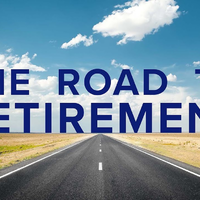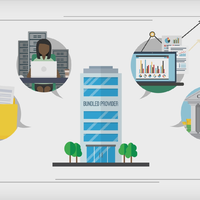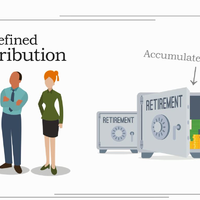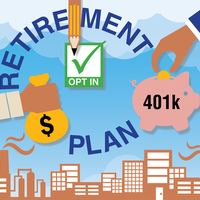- TPS Group
- Articles
Investing in Tomorrow: The Indispensable Role of Retirement Savings
Posted on Jul 21, 2023
Saving for retirement is not just a prudent financial choice but an essential one for most Americans. Social Security is a safety net but is not meant to be the sole support for people when they retire, and the monthly benefits may not be enough to maintain a desired standard of living. Personal savings, investments, and employer-sponsored retirement plans such as 401(k)s ensure a more secure and comfortable retirement.
Continue readingThe Road to Retirement Security: Small Changes for Big Gains
Posted on Jun 21, 2023
This article emphasizes the importance of retirement savings and suggests methods to augment them, such as creating a realistic budget, automating contributions from paychecks, and taking full advantage of employer-matching contributions. It also advises individuals to make small financial changes and take advantage of the power of compound interest to secure a comfortable retirement.
Continue readingThe Importance of Financial Wellness Education in the Workplace
Posted on May 10, 2023
Money is a leading cause of stress for many Americans, even those considered wealthy. Research shows that people worry about retirement savings, college tuition expenses, student loans, health care costs, credit card debt, and the ability to cover the monthly rent or mortgage payment. Employers are recognizing that these financial stressors can have a negative impact on employee productivity and overall well-being.
Continue readingWhy You Should Consider an Unbundled Retirement Plan Solution
Posted on Apr 16, 2023
Learn the benefits of an unbundled retirement plan over a bundled plan. Unbundled plans offer tailored services, open architecture for investment options, and personalized customer service, whereas bundled plans are standardized with limited investment options. Employers looking for flexibility, choice, quality, and customer service should consider an unbundled retirement plan.
Continue readingDefined Benefit Plans Are Not Extinct
Posted on Mar 7, 2023
While it’s true that many private companies have switched from defined benefit plans to defined contribution plans (such as 401(k) plans), it’s worth considering whether a defined benefit plan would benefit you as a business owner and help you meet your tax and savings goals. Generally, the employer makes the most contributions in a defined benefit plan, although sometimes voluntary contributions by employees are permitted or required.
Continue readingSecure Act 2.0: What You Need to Know
Posted on Mar 2, 2023
Learn about the key provisions of the SECURE Act 2.0, a new legislation that aims to expand access to retirement savings and simplify plan administration for employers. Discover how TPS Group's mission aligns with this legislation to promote a secure financial future for all.
Continue readingWhat Employers Should Know About Safe Harbor 401(k) Plans
Posted on Feb 13, 2023
This article explains the difference between a traditional 401(k) and a safe harbor 401(k) plan. A safe harbor 401(k) plan offers benefits for business owners and employees as it is not subject to annual nondiscrimination testing and employees are immediately vested when employer contributions are made. Employers must make mandatory contributions and there are different types of safe harbor plans to choose from.
Continue readingAuto-Enrollment and Auto-Escalation in 401(k) Plans: How to Optimize Retirement Outcomes for Your Employees
Posted on Jan 18, 2023
Auto-enrollment and auto-escalation features in 401(k) plans can greatly benefit employees by encouraging them to save for retirement at an early stage and at a high enough rate to meet their future income needs. However, these features should be reviewed to ensure they are optimized and not just offered to new employees, as existing workers can also benefit from them.
Continue readingThe Pros and Cons of 401(k) Loans and Hardship Withdrawals
Posted on Jan 9, 2023
Employers may allow employees to take loans or hardship withdrawals from their 401(k) accounts, but they come with risks and potential tax consequences. Hardship withdrawals can reduce an employee's account balance, and loans may incur taxes and penalties if not repaid. Employers should carefully weigh the benefits and risks before offering these options to employees.
Continue readingIs a Roth 401(k) Right for You?
Posted on Dec 6, 2022
The pre-tax advantages of a 401(k) plan make it a very effective way for employees to save for retirement and lower their tax burden. Since taxes on a 401(k) are deferred until funds are actually withdrawn, the premise is that in retirement, the individual will be in a lower tax bracket than while employed.
Continue reading










